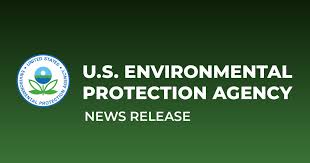
EPA’s Clean Heavy-Duty Vehicles Grant Program, created by the Inflation Reduction Act, will replace existing internal combustion engine heavy-duty vehicles with zero-emission vehicles, while also supporting the build out of clean vehicle infrastructure, as well as the training of workers to deploy these new zero-emission technologies.
Across the US, more than 3 million Class 6 and Class 7 vehicles are currently in use, spanning a wide variety of vehicle types and vocations. Many of these are older vehicles that emit higher levels of harmful pollutants such as nitrogen oxides, fine particulate matter, and greenhouse gases than newer vehicles. This pollution is associated with respiratory and cardiovascular disease, among other serious health problems.
EPA’s Clean Heavy-Duty Vehicles Grant Program will accelerate the adoption and deployment of eligible Class 6 and 7 zero-emission vehicles. Vehicles eligible for replacement include older vehicles powered by internal combustion engines that pre-date recent EPA emission standards.
Proposed replacement vehicles include battery-electric box trucks, cargo trucks, emergency vehicles, refuse/recycling haulers, school buses, shuttle buses, step vans, transit buses, utility vehicles, and other vocational vehicles, as well as a small number of hydrogen fuel cell transit buses. In addition, the Clean Heavy-Duty Vehicles Grant Program also funds zero-emission vehicle fueling infrastructure (e.g., electric vehicle charging stations), as well as workforce development and training.
Approximately 70% of the selections announced will support the purchase of clean school buses, helping provide clean air for children on their ride to school. These projects complement EPA’s Clean School Bus program through the Bipartisan Infrastructure Law, which has awarded nearly $3 billion for nearly 9,000 clean school buses to date.
Selected Clean Heavy-Duty Vehicles Grant Program examples include:
Boston Public Schools has been selected to receive an anticipated $35,079,653 to replace 125 Class 7 heavy-duty diesel and propane school buses with new, zero-emissions electric units, as well as charging provided by 125 Direct Current Fast Chargers, with advanced load management and sharing capability.
Saint Louis Public Schools has been selected to receive an anticipated $10,128,735 to replace 30 Class 6/7 diesel buses with Class 6/7 zero-emission buses to reduce the district’s emissions of nitrogen oxides, particulate matter, and greenhouse gases. The project will directly improve the air quality for students, staff, and community members and reduce district transportation costs. In addition, the district plans to leverage a public private partnership with Highland Electric Fleets (Highland) to ensure cost-effective use of EPA funding and successful implementation of the project.
North Central Texas Council of Governments has been selected to receive an anticipated $60,000,000. NCTCOG will award rebates to program beneficiaries to replace approximately 234 vocational vehicles with 234 zero-emission vehicles. Specific projects will be identified through a Call for Projects to select rebate recipients. Based on a regional fleet survey conducted to inform this proposal, NCTCOG expects the fleet mix to consist mainly of box trucks, step vans, and refuse haulers; most new vehicles will be battery electric with a few hydrogen fuel cell vehicle pilot projects. Each project is expected to include supporting infrastructure. NCTCOG will also develop a regional ZEV workforce development plan, implement priorities identified through the plan and host first responder training specific to ZEV.
Shakopee Mdewakanton Sioux Community has been selected to receive an anticipated $190,000. SMSC will use grant funding to replace its laundry truck with an all-electric alternative. It has existing charging infrastructure onsite that can be used while it waits for new charging infrastructure to be installed closer to where the vehicle will be parked, enabling the new truck to be in service as quickly as possible.
EPA prioritized disadvantaged communities facing air quality challenges, including nonattainment with EPA’s fine particulate matter and ozone National Ambient Air Quality Standards or high levels of ambient diesel PM. Applications were evaluated on engagement with affected communities, especially local residents, to ensure their meaningful participation with respect to the design, planning, and performance of the project. Approximately $523 million (71%) of the funds announced today will be used to fund projects serving communities located in areas in nonattainment with the NAAQS.
In addition to the funding for the replacement of existing internal combustion engine Class 6 and 7 heavy-duty vehicles with eligible Class 6 and 7 zero-emission vehicles, funding may also be used to support zero-emission vehicle adoption and deployment by providing:
Zero-emission vehicle refueling infrastructure.
Workforce development and training.
Project implementation costs.